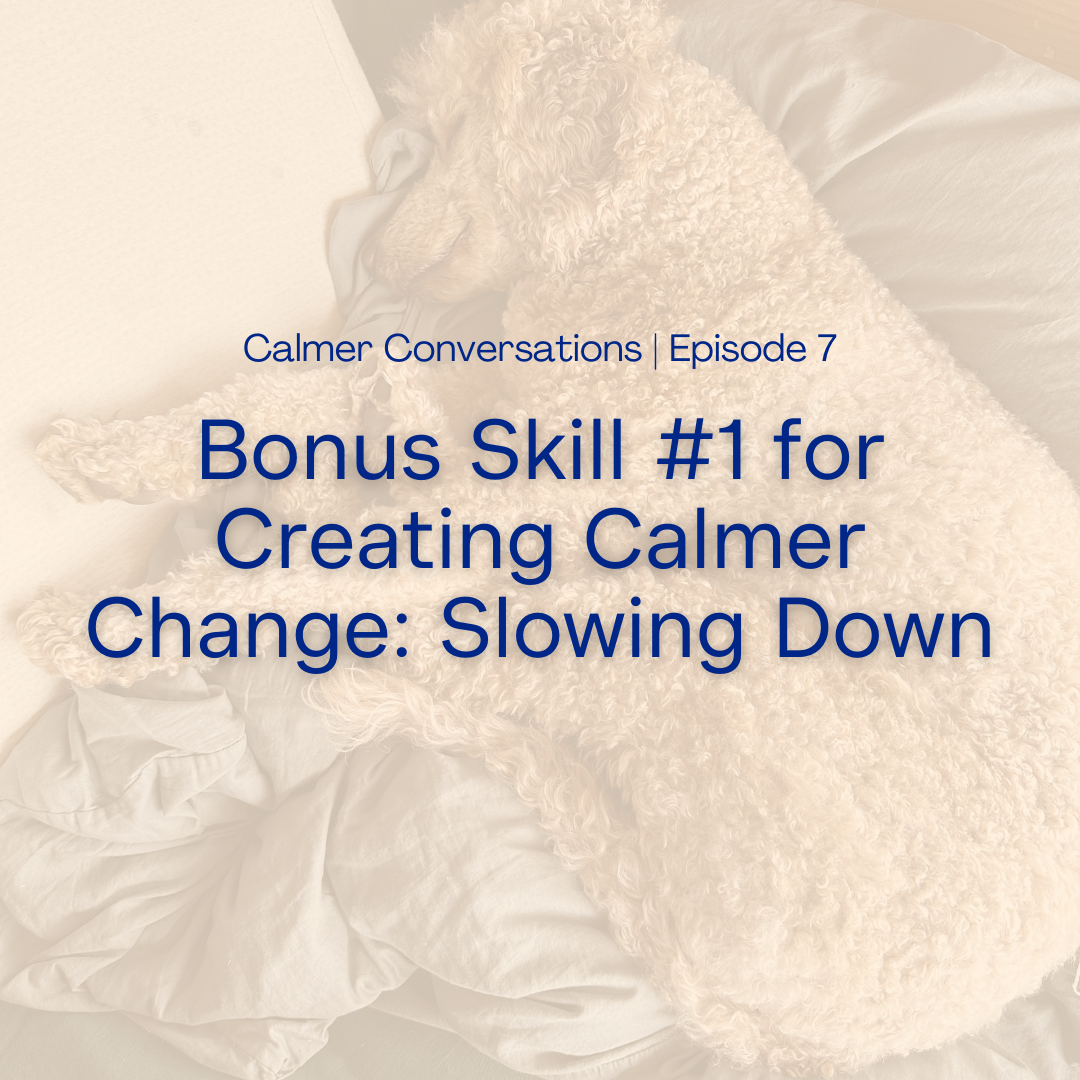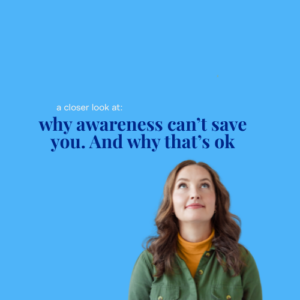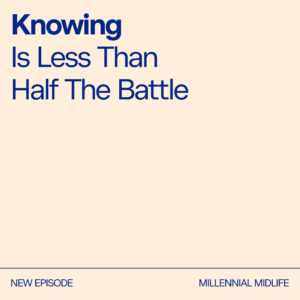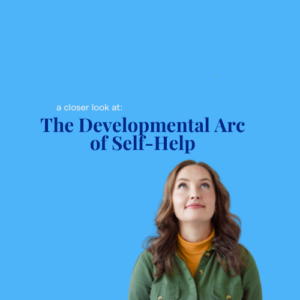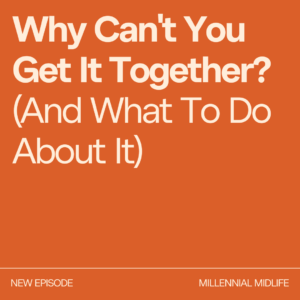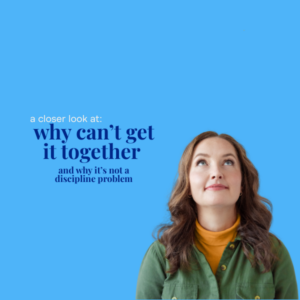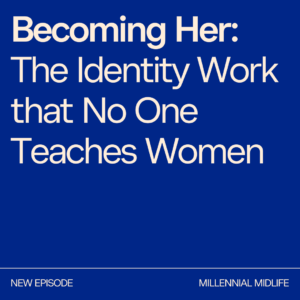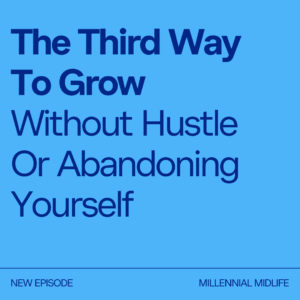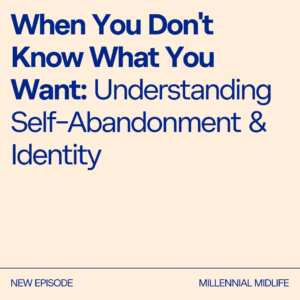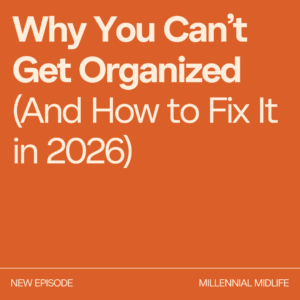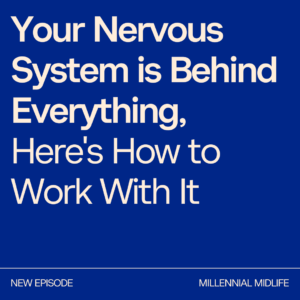Cecelia Baum Mandryk (00:01.72)
Hi, and welcome to Calmer Conversations, episode number seven. I’m Cecilia, let’s get started. So over the past few episodes, we’ve gone through the foundational tools that I use and teach over and over again, and they appear in almost everything that I talk about and everything that I teach. And they are awareness, acceptance, and curiosity. And these really form the foundation of the work that I do with people and with myself.
And I think that they’re so crucial to learn and they seem, they can seem too simple. They can seem like, I want something sexier or more magical or flashier or shinier in some way. Like those can’t be the way to feeling better in life, to feeling calmer, to feeling happier. But I really truly think that they are. And I think that most mindfulness based religions or even other religions across time and philosophies across time and space.
also rely on these tools. So those are the main ones. But as I was recording the episodes, these two other tools kept floating around in my mind as really foundational tools as well. I don’t, I talk about them perhaps not as much, but I think that it’s worth putting them here towards the beginning of this podcast and all the episodes because I think they are so key and they’re so crucial and you might be able to start using them now. And so why not have some episodes on them? So those two tools,
are slowing down and allowing. And these are both tools that sound really good, right? Maybe not allowing, maybe allowing sounds a little bit more out there for some people or they don’t quite know what that means, but slowing down certainly sounds good to most of us. We think, yes, I’d like to slow down. That sounds perfect. I’ll do it when the kids are back in school. Or I’ll do it next year after I’m finished with my degree. Or I’ll do it after the holiday season or something like that, right? Or we don’t even really know what it is.
And so I’m going to dive into each of them over the next two episodes, sort of in the interest of time, knowing that I tend to start talking and riffing on things and more comes up. So today we’re going to focus on slowing down. Next week, we’ll focus on allowing, but know that these are two kind of bonus foundational skills that I use, that my clients use, and that I teach over and over again. Okay. Just one sec.
Cecelia Baum Mandryk (02:30.528)
Okay, so slowing down, what do I mean when I say slow down? What do I, because again, this is something that it’s kind of, I don’t know, it’s cliche to say that we all wanna slow down, that we wanna feel more present, that we wanna be part of what’s happening more in our life, but what do I actually mean? So when I’m talking about slowing down, I’m talking about getting your brain out of autopilot mode. So our brain, your brain, my brain,
human brains have this motivational triad and we’ve talked about this before. I’m going to reiterate it here is that we our brain likes has three. Let’s go back a second. Okay, so the motivational triad is your brain wants to conserve energy or part of your brain, right? So it wants to conserve energy. It wants to avoid danger, keep you safe, and it wants to seek out mostly hedonic pleasure, right? Things that are going to bring you pleasure in the moment.
And we’ll do a whole nother episode on hedonic versus eudaemonic happiness and pleasure at another time. But just know that those are kind of like the type one fun or the fun, the pleasure that’s like pleasurable in the moment, right? Like eating something that tastes really good, like a candy bar or chips or ice cream or doing something like that, buying something. And that’s the focus of part of your brain. And that part of your brain and most of our brains, as I’ve talked about before, they
In order to conserve energy, we greatly reduce the amount of information that we, the sensory information that we take in, that we kind of uptake into ourselves. And we have all kinds of shortcuts, right? Our brain makes all these shortcuts so we can use our brain power and our energy and our glucose stores in our body when we need it, when we’re trying to escape from danger, we’re trying to do something else like seek out pleasure.
So the day -to -day thinking that goes on is very autopilot. It’s a very kind of, get, you know, I’ve used the physical example before of like a riverbed or like a stream. We have one path that we go over and over and over and over again. And that’s okay, right? That’s just a normal human thing to do. But what it means is that whenever you…
Cecelia Baum Mandryk (04:48.864)
Lay the foundation for how you think and that means that you probably didn’t even do it intentionally or consciously. Most of this happens before you’re seven or eight years old. It’s from family of origin, parents, caregivers, whoever you spend a lot of time with, the society you spend a lot of time with, if you were raised in a religion or went to church, all of those different ideas, they wrote lines of code in your brain, ways of operating, rules that you live by, that you adopted at some point in time.
And you don’t even know that you’re living by them most of the time. Sometimes we become more aware over time, right? We can kind of hear our parents’ voice or our caregivers’ voice as we say something out loud. Perhaps if you’re a parent to your children, you’re like, right, that was said to me over and over again. Now I can almost hear my caregiver say it to me as I say it to my child. But oftentimes,
This part of our brain is so good at running on autopilot and so good at just kind of like picking these thoughts that we already have and operating based on them that we don’t even know what’s happening. And your thoughts that you have and the beliefs that you have and beliefs are just thoughts that you’ve repeated over and over again, the conditioning that you have, the lines of code that you have in your head drive how you feel every day and they drive what you do every day.
And so it stands to reason that if you want to change what you do and you want to change how you feel, one of the most important things is understanding what you’re thinking. Understanding those 30 to 90 ,000 thoughts that are operating in your head every single day, that are on repeat over and over and over and over again, and understanding the stories that are there around everything from
what’s possible for you to do physically, to how people age, to what money is like in your life, to how you want to parent. mean, all these different things, right? To how you host us or how you host people at your house. I mean, just really everything, like what you need to wear to a certain event. We have all of these different rules and shortcuts that we’ve made in our brain and we don’t even know they’re there. And they drive how we feel and they drive what we do.
Cecelia Baum Mandryk (06:56.27)
And so again, if you want to change how you feel, if you want to change what you do, or if you just want to feel different in life, then you need to start looking at what you think. And so when I say slowing down, what I mean is in certain situations, because you’re not going to be able to catch all 90 ,000 thoughts, and most of them are repeats anyway, right? But you’re not even going to be able to catch every thought that you have. This definitely is a practice and is definitely easier with somebody else, right? Somebody who doesn’t live in your brain can see your thoughts.
much more easily than you can see your thoughts. You take them as truth so you don’t even notice they’re there, notice that you have them, but somebody else, like a coach, can hear you say them and reflect them to you and then you can start to question them. But slowing your brain down in certain ways around certain situations or certain events in your life can be extremely powerful because then you can take your brain out of autopilot. And this is where the awareness comes in.
Right? So there’s even more to say about awareness, right? This non -judgmental awareness and even having just the intention of, want to be more aware of what I’m thinking. I want to be more aware of the conditioning that I have in my brain that you’re driving, how I feel and what I do. And in some of these cases, I would like to be able to see things differently, right? And we’ll kind of get to that in a few minutes, but the first step in this awareness
and is pairing it with this slowing down. It’s pairing, also, if you’re watching this live, I do lots of hand gesticulations when I’m talking through these different things. when you slow down, you also start to create some space between you, the experiencer, you, perhaps like the ego you, the kind of small S self you.
and the higher self you, the eternal part of you, the part of you that has your higher dreams and hopes in mind, right? You start to create distance between those two. So you can start to see yourself as the one who is experiencing something and seeing what they’re actually experiencing, what thoughts they’re experiencing, what feelings they’re experiencing, how those things impact what they do, the results they’re creating in their life. So you start to be able to notice that separation.
Cecelia Baum Mandryk (09:20.046)
And that separation can only start to happen when you do, when you slow down. And generally when you bring some intention to that space. And so this act of pausing, of questioning, of asking, what am I actually thinking in this moment? What’s going through my head when I’m feeling really angry at my partner around the flowers he got me, right? This is, if you’ve been to some of my workshop, you’ve probably heard the wrong flower example.
What is going through my head when all of sudden cleaning the toilet is on my to -do list and I have a backache and I end up scrolling on the couch for two hours? What is actually happening in my head? What’s the conditioning? What are the lines of code? What are the thoughts or beliefs? You kind of pick the terminology or the imagery that works for you. And then getting curious about them there. And it’s when we slow down.
when we bring this non -judgmental intentionality to our thoughts that we can start to see them in a totally different way. And we’re seeing them in this, when we slow down, really just seeing them for what they are, which is just conditioning, right? They’re not truths in the universe. They’re not truths about you. They are just things that you’re thinking and that your brain has created as habits, right? Your brain has decided this is the thing to think to help me survive as a human.
This is the rule that I need to adapt and adopt in my life, more adopting than adapting in my life, so that I am acceptable, so that people like me, so that I will have the right friends, so that on and on and on, wherever your brain goes. And so this is what I mean when I say slowing down, right? It’s taking your brain and it’s pausing, it’s getting curious in that moment.
The other thing that happens with slowing down and the other important, mean, all that is important, right? So if you don’t know what you’re thinking, it is very hard to make change in your life, right? Whether that’s like starting a new habit or changing jobs or thinking of yourself differently or being kinder to yourself or other people, whatever it is for you. If you want to make change in your life, really truly, you have to understand what you’re thinking.
Cecelia Baum Mandryk (11:36.962)
because your thoughts are so important in what you do. And of course you can force change from an action level. You can force yourself to do something else. But ultimately, if you don’t change the thoughts behind what you’re doing, you will revert. It’s why so many people are like, everything was going so well for a month or years and then something big happened in my life. And I went back to exactly the way I was before, right? Whatever that is around. So that’s why that happens because the core thoughts, the core beliefs, the core conditioning,
they weren’t changed because probably you didn’t learn how to do this, right? Most people don’t have never heard of this. They’ve just, we haven’t learned it. So if you haven’t learned it until now, there’s nothing wrong with you. It’s just not something that maybe has been on your radar. It’s not something that most people are taught. The other reason why it’s important to slow down is that when you’re rushing, when you’re going through life on this autopilot mode and maybe even pushing yourself to do more to do
to be enough to get through things, to get through your to -do list, you actually put your nervous system into that sympathetic fight or flight state, right? When you push yourself all the time, when you’re not slowing down, you’re always in that kind of activated state. And your nervous system gets really used to it, so it almost wants to be there. So slowing down can also feel really uncomfortable if you’re not used to it. But if you’re always in that sympathetic state, you need, you…
If you’re always in that sympathetic state, you actually lose access to higher thinking, to creativity, to your capacity for connection to you and other people, for empathy. So slowing down and getting your nervous system back into a regulated space is actually really crucial for you being the person you want to be in life, right? For being this person who shows up differently, who maybe…
is able to connect with people around them who is thinking at the level you want to be thinking at. And oftentimes, if we have been caught up in the rushing or the doing, we think we’re kind of led into this false belief that you’re performing best in that space. But that’s an adrenaline kind of thing. And that’s a fear thing of, if I don’t get it done or I work better when I feel the pressure of not getting it done.
Cecelia Baum Mandryk (13:55.736)
but really truly you’re hamstringing yourself in terms of your cognitive ability and your creativity. So if you wanna feel more creative in life, if you wanna feel like you have access to higher thinking in a different way, slowing down is also really powerful from that perspective. So those two reasons, I mean, that we could probably go on and on with benefits of slowing down for many reasons, and we’ll talk about rest too later on, but right now just knowing…
that when you do take the time to slow down and get curious about what’s happening in your brain, you will understand your thoughts and conditioning, the lines of code in your brain more fully. You’ll be able to understand the impact they’re having in your life more fully. And then you can kind of use that curiosity to change them. And ultimately, when you slow down, you also give yourself the chance to regulate your nervous system. And the nervous system is that component that a lot of times we don’t talk about, or we talk about in isolation,
But again, your nervous system needs, you need to feel safe to slow down. You need to feel safe to do something different. You need to feel safe to be a different version of you. And that comes from caring for your nervous system. So slowing down has lots of different benefits, but those are two of the main ones that I think and why I think this is a foundational skill, the capacity and the ability to slow down the practice of slowing down. But how do you use it in your life, right? Because
Most people aren’t going to go from 100 down to 20 miles per hour, kilometers per hour at once, right? We need to make different changes. So I mentioned this earlier in the episode, but I think one really powerful way of doing this, and I’ll mention this over and over again, is picking one area where you’d like to bring more intention and you’d like to slow down. So maybe it’s one event. Maybe it’s one time period in your day. And it’s just…
Starting to ask those questions that we asked about that we talked about in the curiosity episode of you know, How do I want to feel in this moment? How am I feeling right now? What is going through my head right now? How do I want to feel if I got to choose how it was showing up here? How would I want to be different? And when you start to ask these questions in the space and when you start to slow down and get really curious about what’s happening in your brain Then all of sudden you can become aware of again the changes you want to make and also how
Cecelia Baum Mandryk (16:15.39)
how you are being, your autopilot mode is impacting you. Right? again, most of the time we don’t understand the thoughts that we’re having and the impact they have in our life, the belief systems that we’ve kind of inherited or we’ve adopted in our life. We don’t understand the impact of them. And so we need to slow down and see them first before we can understand the impact of them. And then we can ask if we want to change them. You never have to change them, but you have to
If you want to start bringing intentionality to your life and change how you feel, you at least want to have that conversation with you. Right? You at least want to bring it up for yourself. Okay. So I mentioned this earlier in the episode, but I’m going to mention it again here because I think it’s so, I mean, I get emails all the time of people who follow me on Instagram and make these massive changes in their life. And I think that’s really amazing. And I will say that as someone who was a DIY person for so long, that having a coach look at your brain is so powerful.
Having the courage to talk through something with somebody else and say, I want to feel different. Help me see what’s happening in my brain is really powerful. When you live with yourself, it’s very hard. Your brain has been repeating the same things for years. If you’re listening to this likely decades of your life, your brain has been repeating these thoughts over and over again. And so they are so.
true to you that you don’t even think to question them. You don’t even notice that their thoughts, even if you start to have this desire, this intention to slow down. so finding somebody, could be a therapist, it could be a coach, it could be a group coaching program. If you like these episodes and you like following me, then I would encourage you to check out the club or one -on -one coaching with me. But having somebody to look at your, allowing somebody to look at your brain, really.
is so powerful because they can see things that you can’t see. And when they are coaching or they’re, you you’re in therapy, it is from a totally non -judgmental, 100 % accepting place, hopefully, right? At least in my coaching spaces, I can speak for that, I can speak for myself. Is that everything is totally accepted and acceptable so we can look at it and ask if we wanna change it.
Cecelia Baum Mandryk (18:29.122)
but being able to see where you’re getting stuck and the thoughts and beliefs that are holding you where you are, even if you desperately wanna change, is really powerful because sometimes it’s these old, old thoughts that are the ones that are hard to see and they’re hard to know how to move forward with. And so again, having somebody else call them in for you to point out, this is a thought that you’re carrying, right? You have the belief that if you do this thing that you desperately want to do,
your family is going to fall apart, well, that’s a very interesting belief that you have. And of course, you’re then not moving forward with this thing. Of course, you’re putting it off and procrastinating and putting it on the back burner all the time because you probably don’t want your family to fall apart. And so again, knowing that there is a belief like that as an example in your brain can again, just be powerful for working through it because awareness is so key, as I’ve said over and over again for making the change. Okay.
So that’s what I mean when I say slowing down. And of course you can slow down in your life in other ways. And those are also can be amazing and restorative and therapeutic as well. But this is what I’m talking about. I’m talking about slowing your brain down so you can see it. Slowing it down around specific areas or topics at first, just so you can start to get curious what’s happening in your brain. What is there? And then maybe asking yourself, what would it be like to try something like coaching, to try and see what it be like for somebody else to look at my brain and see some of the places that I might be getting stuck.
knowing that they are entirely human and you are not alone. I have these group coaching programs and not once has someone brought a topic and like everyone else like, that doesn’t, that doesn’t resonate for me, right? It might not resonate 100 % across the board, but very often someone brings something up and at least half the room is nodding along saying, yes, I also deal with that thing. So just know that too, that whatever is coming up in your brain or wherever you do feel stuck,
It’s not you, it’s a human brain thing and being able to see it differently, to slow down, to notice it, have some clarity around it and even acceptance around it is really powerful moving forward. Okay. Thank you so much for joining today. I will be back next week.

